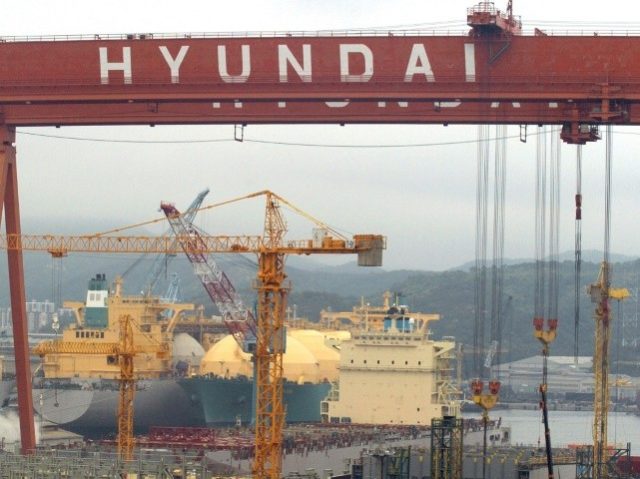The Chinese Communist Party has commanded travel agencies not to book tours to South Korea and appears to have blocked South Korean entertainment, including popular television dramas, in response to Seoul’s accelerated moves to install a missile defense system that can reach into China.
The South Korean government approved a deal this week to use land owned by the private corporation Lotte Group to install the Terminal High Altitude Area Defense (THAAD) system, a joint U.S. project intended to protect from incoming North Korean missiles. The move follows an erratic month for North Korea in which it once again violated international sanctions with a missile launch and stands accused of using a weapon of mass destruction to kill Kim Jong-nam, brother to dictator Kim Jong-un.
The South Korean newswire service Yonhap reported on Friday that the Chinese government had “told major travel agencies in the country to stop selling tours to (South) Korea.” Individuals could still travel to the country, and the move did not appear to be an official ban on travel. However, Yonhap added that a number of visits to the country by Chinese business leaders, including a planned trip by 4,000 Chinese company employees, were canceled, and more such visits could be canceled down the line. Yonhap cited “industry sources” as warning that the number of Chinese citizens visiting South Korea could drop by as much as 50 percent with such a policy in place, devastating the tourism industry.
“Korea could suffer a sharp drop in tourism revenue by $9.63 billion, should it lose half of its Chinese tourists,” Yonhap noted.
In addition to halting tourism in the country, albeit in an unofficial fashion, reports indicate that Chinese broadcasters have dropped popular South Korean television dramas and music videos. The music magazine Billboard reported this week that Chinese online video streaming services have stopped showing South Korean content, with at least one posting an official statement on social media against the deployment of the THAAD system.
Asked about the media boycott on Wednesday, Chinese Foreign Ministry spokesman Geng Shuang said, “I am not aware of that since I personally am not a fan of TV dramas and entertainment shows of the ROK [Republic of Korea].”
“We hope the ROK side will cherish the hard-won achievements in China-ROK relations, face China’s legitimate concerns squarely, heed the voice of the people, stop the deployment process and avoid causing more severe, negative impact on the bilateral relationship, our business cooperation and people-to-people and cultural exchanges,” he added.
Geng has also repeatedly addressed what appears to be another Beijing maneuver against the South Korean government: generating a popular call for boycotting all South Korean product. On Friday, Geng told reporters that South Korea should “listen to the voice of the people and take earnest steps to avoid further damage to China-ROK relations and bilateral exchanges and cooperation,” suggesting that economic moves against Seoul were organic reactions to THAAD.
Among those organic reactions have been a call to boycott Lotte Group’s markets and products for providing the land to install the THAAD system and protests outside of its markets in China. Chinese protesters have vandalized Hyundai cars, and Lotte Group says it has come under cyber attack. The Chinese Youth Communist Party has galvanized much of the public outrage, Reuters reported. The result has been a significantly bad day for Korean companies like Hyundai and Asiana Airlines.
The Chinese government has loudly dismissed accusations of cyber-attack as “speculation” and denied any calls to vandalism or violence.

COMMENTS
Please let us know if you're having issues with commenting.